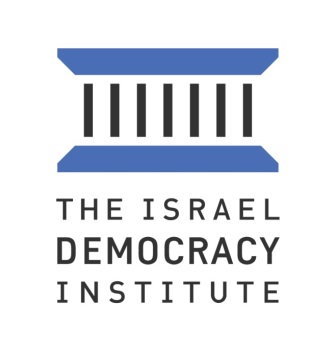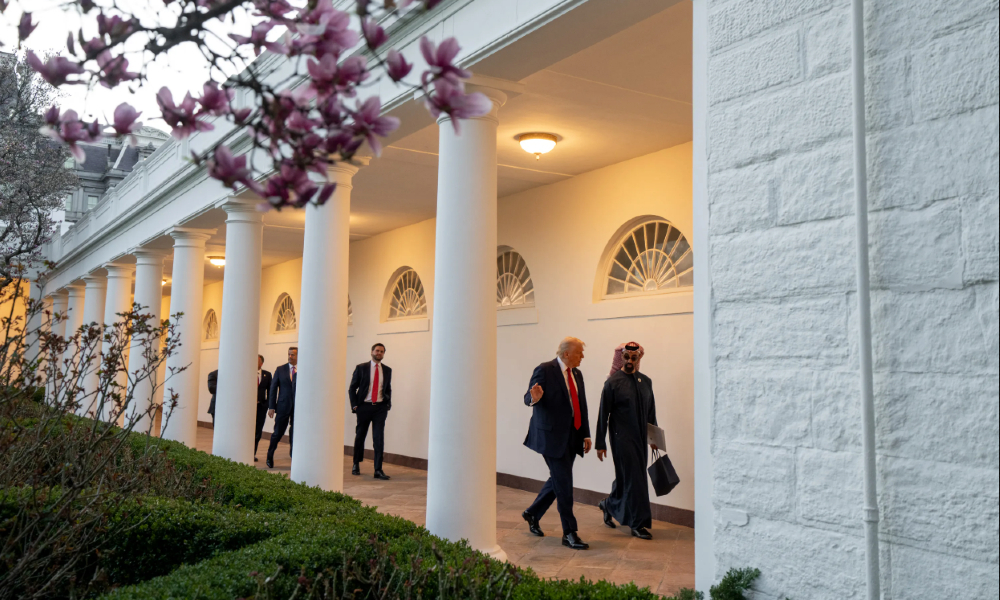The New Israeli Government’s ‘Constitutional Law Reforms’: Why now? What do they mean? And what will happen next?
.jpg?sfvrsn=7d6f651f_3)
Published by The Lawfare Institute
in Cooperation With

 Following the Nov. 1, 2022, Israeli elections, the right-wing bloc of parties headed by the Likud and Benjamin Netanyahu—which won, jointly, 64 out of 120 seats in the Knesset—was able to form a government, and on Dec. 29, 2022, Israel’s 37th government was sworn in. Two key positions in the government and the Knesset were assigned to two longtime critics of the Israeli judiciary: Yariv Levin (Likud), who was appointed minister of justice, and Simcha Rothman (Religious Zionism), who was appointed chair of the Knesset Constitution, Law and Justice Committee. The written agreements between the parties that formed the governing coalition unequivocally stated that judicial reform would take precedence over any other matter, and be supported by all coalition parties.
Following the Nov. 1, 2022, Israeli elections, the right-wing bloc of parties headed by the Likud and Benjamin Netanyahu—which won, jointly, 64 out of 120 seats in the Knesset—was able to form a government, and on Dec. 29, 2022, Israel’s 37th government was sworn in. Two key positions in the government and the Knesset were assigned to two longtime critics of the Israeli judiciary: Yariv Levin (Likud), who was appointed minister of justice, and Simcha Rothman (Religious Zionism), who was appointed chair of the Knesset Constitution, Law and Justice Committee. The written agreements between the parties that formed the governing coalition unequivocally stated that judicial reform would take precedence over any other matter, and be supported by all coalition parties.
Both Levin and Rothman wasted little time. In a press conference on Jan. 4, 2023, Levin presented a “legal reforms” package, which he described as the first in a planned series of such packages. Levin declared that the package would include laws limiting the power of the Supreme Court to strike down Knesset legislation, limiting the power of the Supreme Court to review administrative acts, increasing the influence of the executive and legislative branches on judicial appointments, and overhauling the process for appointing government legal advisers and reducing their legal powers. On Jan. 11, Levin published a draft bill that seeks to give effect to the first three suggested changes. On Jan. 12, Rothman presented to his committee a draft bill that seeks to reform the status of government legal advisers (the fourth suggested change). On Jan. 18, Rothman put forward another draft bill containing his own proposals for addressing the remaining components of the Levin plan. Rothman’s bill is similar to Levin’s bill, although the former deviates from the latter on a number of issues.
The planned legal reform has been severely criticized by the opposition parties, many voices in academia, and many members of the legal profession in Israel and abroad. It has also been at the center of a growing protest movement, involving tens of thousands of demonstrators participating in mass rallies in Tel Aviv, Jerusalem, and other Israeli cities. The protesters maintain that the package would spell the end of liberal democracy in Israel. One of strongest voices raised against the legal reform has been that of the Supreme Court president, Justice Esther Hayut, who criticized the proposal in a public speech at a professional conference on Jan. 12. She characterized the reform as an “unrestrained attack on the legal system,” as a “critical blow” against judicial independence and impartiality, and as a “bad plan” that would change the democratic identity of the state of Israel, leaving it “unrecognizable.”
The proposals are attracting criticism not only for their content but also for the unparalleled speed with which they are being advanced. The process for legislating the legal reform package has already started, and the Knesset Constitution, Law and Justice Committee has been holding daily discussions on the chair’s draft bill over the past four weeks. Rothman has been pushing the discussion forward without waiting for the committee’s own legal advisers to issue an opinion on the draft bill, which was prepared without their involvement. In response, opposition members declared a boycott on the discussions until such an opinion has been submitted. In parallel, questions relating to the legal reforms have been attracting increased attention in the media inside and outside Israel (see, for example, here and here).
We seek to provide context for the ongoing debate concerning recent legal developments in Israel, so that outside observers can follow them more closely. This first article will offer background on the current legal reform initiative. The second article will deal with plans to limit constitutional review. The third article will cover plans to limit administrative review. The fourth will deal with plans to change the judicial appointment process. The fifth will address the planned reforms pertaining to government legal advisers, and the sixth will offer concluding observations about the overall and combined effect of the planned reforms, as well as provide updates about the political and legal fights surrounding them.
While many of the specific issues on the table are distinctly Israeli in nature, others are issues that have given rise to public controversy in other countries as well. In this article, we will offer some brief background on the current legal reforms package in the context of previous attempts to regulate the powers of the different branches of government in Israel.
While we will present the main arguments on both sides of the debate, we do not pretend to be neutral observers on this subject: Rather, we believe that the substantive contents of the Levin and Rothman proposals are misconceived and dangerous, and that the way they have been proposed has been, at least up until now, seriously flawed.
We the authors both support a process that would strive to build a broad political consensus around “constitutional rules of the game.” We have been involved, through the Israel Democracy Institute, in a process that was aimed at achieving exactly these goals in recent years. Such a process should address legitimate criticisms of the judicial branch, and may include some institutional changes, while ensuring that strong protections remain for human rights, the rule of law, and democratic checks and balances.
Israel Pre-1992
Until 1992, Israel was considered a country without a constitution. While its 1948 Declaration of Independence envisioned elections to a constitutional assembly that would formulate a constitution, the assembly transformed itself into a parliament—the Knesset—and decided to substitute its mission of composing a single constitutional text with an incremental constitution, made up of a series of “basic laws” to be legislated over the years. Following this, the Knesset adopted 13 basic laws between 1958 and 2018, most of which regulate the powers and responsibilities of major state institutions (the Knesset, the government, the president, the judiciary, and so on). Significantly, the first batch of basic laws did not contain a bill of rights—the one major exception being the right to vote and be elected, enshrined in Basic Law: The Knesset.
It is against this background that the courts were tasked with developing a human rights jurisprudence. In particular, this task fell to the Supreme Court—which in Israel serves as both a superior court of appeals and a first-instance administrative law court (the High Court of Justice) dealing with direct challenges brought against governmental acts. The latter role has no analogue in the United States, where the Supreme Court has original jurisdiction only over the smallest range of matters and serves almost exclusively as an appellate body. In Israel, for many challenges to government action, the Supreme Court, sitting as the High Court of Justice, is the court of first and last review.
The development of this jurisprudence involved three major features: the interpretation of statutes in ways compatible with basic human rights recognized in other leading democracies, in Israel’s Declaration of Independence, and in international law; the requirement that governmental acts violating human rights must be explicitly authorized by statute; and the requirement that any such human rights implications must be duly considered by the relevant government agency. In the course of applying this canon of interpretation and judicial review of administrative acts, the Supreme Court recognized many human rights, including freedom of expression, right to equality, right to privacy, and freedom of assembly. This system of human rights protections did have, however, clear limits: If the Knesset explicitly deviated from a human rights standard, there was almost nothing that the Court could do, since the Court did not have the power to review the constitutionality of legislation.
The Supreme Court’s power to review the legality of governmental acts expanded to a considerable extent from the late 1970s onward, mostly under the leadership of Supreme Court Presidents Meir Shamgar and Aharon Barak. This shift flowed from three developments in legal doctrine, which remain somewhat controversial today: (a) the relaxation of standing requirements and the opening of the Court’s doors to public petitioners seeking to uphold the rule of law even if they are unaffected by the challenged government action or policy; (b) a severe limitation of the government’s defense of nonjusticiability on grounds that a controversy presents a political question; and (c) the rise of the “unreasonableness” doctrine as a key tool to review the legality under administrative law of government decisions. According to this doctrine, if the government does not take account of a relevant consideration for a given decision, or if it balances the relevant considerations in a patently unreasonable manner, the Court can invalidate the decision. The Court also applied such doctrines, with some small variations, to cases against the Israel Defense Forces (IDF) relating to its activities in the territories occupied by Israel in 1967. And while the Court sided with the petitioners in such cases only rarely, the mere fact of its reviewing of IDF actions has provoked many Israelis to consider it “leftist” in its political orientation.
Despite these changes, tensions between the political branches and the Court remained limited until the 1990s and the process of appointing judges received scant attention. This process was developed in the early years of the state: After initially appointing judges itself, the government ceded in 1953 the appointment power to a Judicial Selection Committee composed of three Supreme Court justices, two members of the bar, two members of the Knesset (often, but not always, including one member from the political opposition), and two government ministers (including the minister of justice, who serves as chair of the committee). This method of appointment ensured that professional considerations would dominate the process. In recent years, the system has been criticized as affording judges too much power in the appointment process, resulting allegedly in an elitist and nondiverse judiciary.
A final relevant element in the Israeli legal system involves the role of the attorney general, who is appointed by the government (since 2000, following the recommendation of a public committee) and serves as the country’s chief legal adviser, as well as head of its legal representation services. The Israeli attorney general, notwithstanding the similar nomenclature, is not like the U.S. attorney general. Israel’s version of the office does not run the Ministry of Justice, the Israeli analogue to the Department of Justice. That latter role is a political office held by the minister of justice, who is a member of the government.
That said, the powers of the attorney general are considerable. He or she serves as a kind of rule-of-law “gatekeeper” invested with the power to uphold the law and protect the public interest. The attorney general’s legal positions bind all government agencies; he or she may decide whether or not to represent the government in court (and, if not, whether the government may obtain alternative private representation) and whether to indict criminal suspects, including politicians. While there were sporadic clashes between the government and the attorney general before 1992, following the “constitutional revolution” of the 1990s, described below, and the increase in the number of criminal investigations and indictments against serving politicians, a number of political initiatives have been proposed to limit the power of the attorney general and other government legal advisers.
Israel Post-1992
In 1992, the Knesset passed two basic laws (here and here) that restricted its own power to legislate in a manner that violates certain basic rights (the rights to life, bodily integrity, dignity, property, personal liberty, privacy, movement in and out of the country, and freedom to choose a profession), except under certain conditions. To do so, the law specified, the basic laws required the Knesset to have appropriate legislative authority and a legitimate purpose, and its actions must be compatible with the values of the state and not excessive in the burden it imposes on the rights in question. In a landmark decision rendered in the 1995 case United Mizrahi Bank v. Migdal, the Supreme Court proclaimed the basic laws as constitutional in nature, and interpreted the two laws from 1992 as providing it with the authority to strike down new legislation incompatible with their terms. Although the Court had struck down legislation before 1992 on a number of occasions for violating the equal elections provision of Basic Law: The Knesset, the significant increase in the powers of judicial review and the sharp broadening of the constitutional bill of rights has been described by President Barak as a “constitutional revolution.”
Pursuant to the United Mizrahi Bank holding regarding its power to review the constitutionality of legislation, the Court has nullified 22 pieces of legislation over the years. It is notable that some of these cases involved an expansive interpretation of the rights enumerated in the basic law. For example, the Court read into the right to human dignity a right to equality and due process.
In recent years, the Court also considered on a number of occasions whether the basic laws themselves can be subject to judicial review. Since the process for passing basic laws in Israel is no different from the process for passing ordinary laws, the Court has expressed concern about attempts by the Knesset to shield ordinary legislation, including technical budgetary provisions, from review by providing such legislation with the title “basic law”—something a number of justices on the Court considered a misuse of the institution of basic laws. Furthermore, a few justices expressed the view that basic laws that run contrary to the core values of the state of Israel as a Jewish and democratic state might be struck down as “unconstitutional constitutional amendments.”
Proponents of the post-1992 constitutional revolution have regarded it as bringing to fruition the process of incremental constitution-making announced by the first Knesset, and as an important step in the transformation of Israel from a mere parliamentary democracy to a constitutional liberal democracy with stronger checks and balances. Certainly in terms of human rights protection, the fact that any new law can be challenged before the Court had a chilling effect on legislative efforts. So while Israeli constitutional law still suffers from many deficiencies, including a relatively short bill of rights, the impossibility of challenging the constitutionality of most pre-1992 legislation (Basic Law: Human Dignity and Liberty did not apply retroactively), and the limited applicability of constitutional law in the occupied territories, the constitutional revolution marked a significant legal advancement toward curbing the power of the Knesset to violate human rights.
At the same time, the post-1992 development attracted, and continues to attract, strong criticism. Critics have questioned the intent of the Knesset to confer in 1992 constitutional review powers to the courts—and there are, indeed, conflicting narratives on the matter of legislative intent. They have also questioned the constitutional status of basic laws, noting, in particular, the fact that the two basic laws of 1992 were endorsed only by a small majority of Knesset members who were present and voting. Indeed, most of the 120 Knesset members did not show up for the vote (proponents of the law note, by contrast, the multiparty support for and limited opposition to the basic laws). Indeed, Basic Law: Human Dignity and Liberty was passed by a vote of 32 to 21 with one abstention, and Basic Law: Freedom of Occupation was passed by 23 members voting in support and without opposition. Subsequent amendments to these basic laws, keeping in place the provisions on which the Supreme Court relied for constitutional review, have been passed by a large majority of Knesset members, however. In addition, critics have expressed concern about the Court’s willingness to read more and more unenumerated rights into the few enumerated rights contained in the basic laws.
The bottom line is that the change in the balance of power between the branches of government in Israel following the constitutional revolution continues to be anathema to significant parts of the Israeli electorate—especially to groups that associate the justices of the Supreme Court with Israel’s political left or, more generally, with liberal ideology and Israel’s traditional Ashkenazi and secular elites. Such groups regard the revolution as an illegitimate power grab that transferred the final word on many societal affairs to unelected judges. The empowerment of the Court (and, by implication, also of the attorney general, who derives much of his or her power from conveying to government officials the limits on their authority emanating from Supreme Court rulings) has put wind in the sails of proposals to change the appointment process to the Court, with a view to diversifying its ideological composition and to subject government legal advisers to closer political control.
Why now?
Political discontent with the power relationship between the judiciary and the political branches has been percolating since the 1990s, often in connection with criminal proceedings against senior politicians. Israel has seen, since 1993, a president, a prime minister, 12 ministers, and 20 members of the Knesset convicted of criminal offenses and several others, including the current prime minister, indicted. Since the 1990s, the Court has held that persons indicted for or recently convicted of serious crimes cannot hold a ministerial position other than prime minister. A number of senior politicians—including former Ministers of Justice Daniel Friedmann, Yaakov Neeman, and Ayelet Shaked—prepared over the years draft bills (see here, here and here) seeking to limit the powers of the Supreme Court to strike down legislation, mainly through an “override mechanism” that would allow the Knesset to relegislate laws struck down by the Court as unconstitutional. Some of these proposals also included other issues, including plans to limit the powers of the Court to admit cases brought by public petitioners (actio popularis) to change the judicial appointment system and to weaken the powers of government legal advisers.
Still, while Israel had coalition governments that included centrist parties, these ideas gained limited political traction—given the traditional support of the judiciary by the Israeli left and center—and did not result in legislative changes. The one major exception was a legal change to the voting rules for appointing Supreme Court justices, passed in 2008, requiring a supermajority of seven out of nine members of the Judicial Selection Committee for such appointments, which effectively gave the ruling coalition and the serving justices veto power over new appointments to the Supreme Court.
But this political atmosphere has now changed. The current coalition is composed of staunch critics of the judicial system and the constitutional revolution, like Levin and Rothman, and other populists who portray the judicial system as a detached liberal elite or a “deep state.” The new coalition also includes far right-wing politicians, who have long resented the Supreme Court and perceived it as an obstacle to their plans to construct more West Bank settlements (including on Palestinian land); ultra-Orthodox members of the Knesset, who have clashed with the Supreme Court mainly over its decisions to nullify religious exemption laws de facto absolving ultra-Orthodox yeshiva students from military service; and some politicians who have had been criminally investigated, indicted, or convicted by the judicial system and wish to see it disempowered. Furthermore, the surprising majority that the Netanyahu coalition obtained (64 seats out of 120 seats in the Knesset)—largely as a result of two opposition parties falling just short of the 3.25 percent electoral threshold—creates unique political conditions for advocates of the reforms that might not repeat themselves in the foreseeable future. This is probably why the government is pushing the reforms so quickly—hoping that opponents of the reforms would not have enough time to organize—and so aggressively, as package after package of changes, so that they get the job done before the coalition destabilizes, as Israeli coalitions tend to do.






